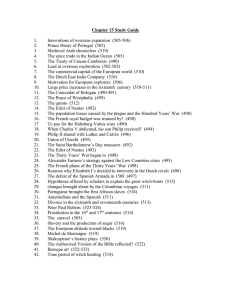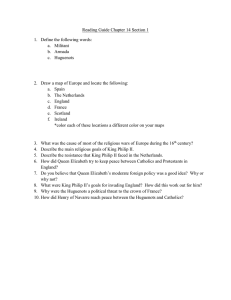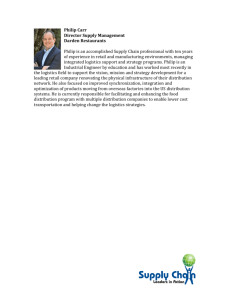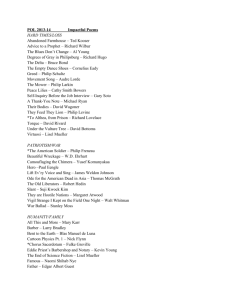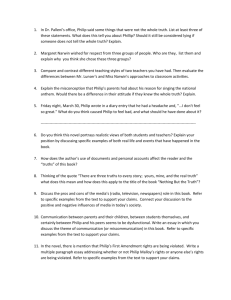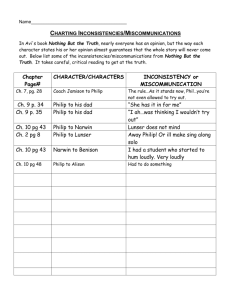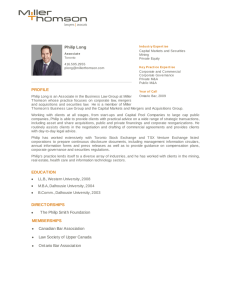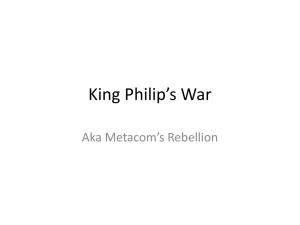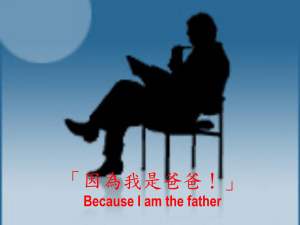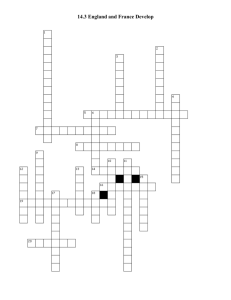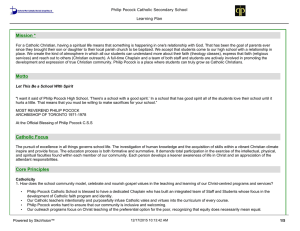Research Journal
advertisement
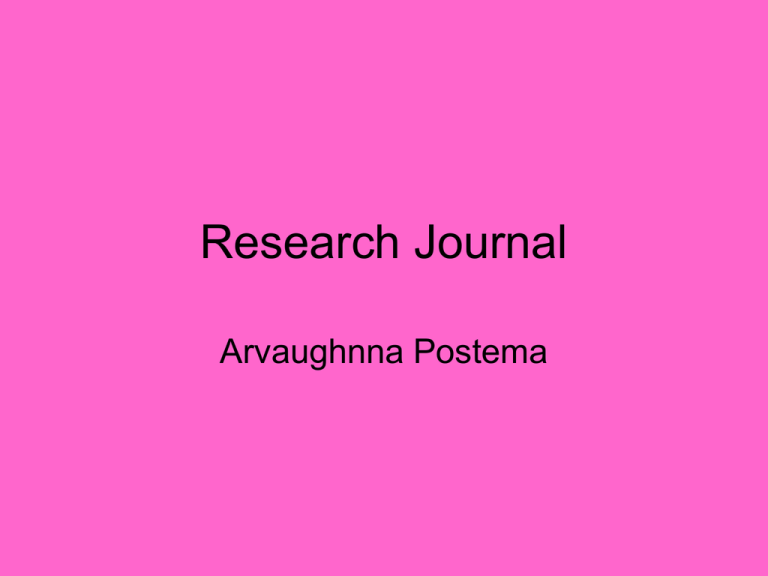
Research Journal Arvaughnna Postema http://www.bartleby.com/65/he/Henr y4Fr.html • Raised as a Protestant, he was recognized (1569) by the Huguenot leader Gaspard de Coligny as the nominal head of the Huguenots (this is useful for my religion argument between Philip, Elizabeth, Henry) • With the Edict of Nantes (1598; see Nantes, Edict of), he established political rights and a measure of religious freedom for the Huguenots. Aided by baron de Rosny (later duc de Sully), Henry restored some measure of financial order, encouraged agriculture, founded new industries, built roads and canals, expanded foreign trade through commercial treaties with Spain, England, and the Ottoman Empire, and encouraged colonization of Canada. (this info will help me with my argument about foreign policies and different laws that were passed by ea. Ruler) http://www.historylearningsite.co.uk /PhillipII_government.htm • Philip II, as head of the government of Spain, believed in the divine right of monarchs and used this to justify a number of immoral and illegal acts, such as ordering murders. Philip developed a system of regional selfgovernment with viceroys answering to him and he ruled as an absolute monarch. (this info will assist me with my government argument and my religion argument) • http://www.historylearningsite.co.uk/P2forpol.htm – Philip II's foreign policy was to affect much of Europe. In many senses Philip II had too many responsibilities and not enough financial clout to respond to his foreign problems. Philip's foreign policy went from grand successes, such as defeating the Turks at Lepanto, to humiliating defeats as happened in 1588 with the failure of the Spanish Armada. • (This info should help with comparing Henry and Philip’s viewpoints on foregin affairs • http://www.historylearningsite.co.uk/phil1.htm – – – Philip II generally believed that what was good for Spain was good for the Catholic Church. Philip himself was a devout Catholic and used up vast sums of money in defence of Catholicism. He looked on the pope as the spiritual head of the Catholic Church but he did not commit himself to the decisions of Rome when they conflicted with his own beliefs. Philip II saw himself as the lay protector of the Catholic Church with two responsibilities: 1) fighting in its defence 2) ensuring its spiritual regeneration • (This info will help with my religion argument) http://www.elizabethi.org/us/power/ • The England of Elizabeth was a very structured place, and had a rather complicated system of government. First there were the national bodies of government such as the Privy Council and Parliament, then the regional bodies such as the Council of the Marches and the North, and then county and community bodies. • National, or rather Central, government, consisted of: Monarch ~ Privy Council ~ Parliament – (this info should help with the government argument)
